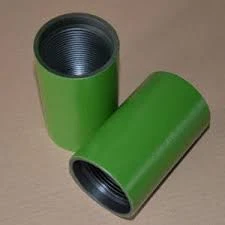- Afrikaans
- Albanian
- Amharic
- Arabic
- Armenian
- Azerbaijani
- Basque
- Belarusian
- Bengali
- Bosnian
- Bulgarian
- Catalan
- Cebuano
- Corsican
- Croatian
- Czech
- Danish
- Dutch
- English
- Esperanto
- Estonian
- Finnish
- French
- Frisian
- Galician
- Georgian
- German
- Greek
- Gujarati
- Haitian Creole
- hausa
- hawaiian
- Hebrew
- Hindi
- Miao
- Hungarian
- Icelandic
- igbo
- Indonesian
- irish
- Italian
- Japanese
- Javanese
- Kannada
- kazakh
- Khmer
- Rwandese
- Korean
- Kurdish
- Kyrgyz
- Lao
- Latin
- Latvian
- Lithuanian
- Luxembourgish
- Macedonian
- Malgashi
- Malay
- Malayalam
- Maltese
- Maori
- Marathi
- Mongolian
- Myanmar
- Nepali
- Norwegian
- Norwegian
- Occitan
- Pashto
- Persian
- Polish
- Portuguese
- Punjabi
- Romanian
- Russian
- Samoan
- Scottish Gaelic
- Serbian
- Sesotho
- Shona
- Sindhi
- Sinhala
- Slovak
- Slovenian
- Somali
- Spanish
- Sundanese
- Swahili
- Swedish
- Tagalog
- Tajik
- Tamil
- Tatar
- Telugu
- Thai
- Turkish
- Turkmen
- Ukrainian
- Urdu
- Uighur
- Uzbek
- Vietnamese
- Welsh
- Bantu
- Yiddish
- Yoruba
- Zulu
what is a bull plug
Understanding Bull Plugs Their Definition and Uses
Bull plugs, an often-overlooked element in various industries, play a crucial role in sealing and securing pipe ends and vessel openings. These devices are integral to maintaining the integrity of equipment and ensuring safety in several applications. Understanding exactly what bull plugs are, their functions, and where they are used can provide valuable insights into their importance.
What is a Bull Plug?
A bull plug, also known simply as a plug, is a type of fitting designed to close the open ends of pipes or vessels. Typically made from materials such as metal, plastic, or rubber, bull plugs come in various sizes to fit different pipe diameters. They are instrumental in applications where a temporary or permanent seal is required, preventing the escape of fluids, gases, or vapors.
The design of a bull plug often involves a tapered shape that allows it to fit snugly into the pipe opening. Many bull plugs also feature a threaded exterior, enabling secure attachment to a variety of fittings. This ensures that they remain firmly in place, even under pressure conditions.
Applications of Bull Plugs
Bull plugs find their applications in diverse settings, including construction, plumbing, oil and gas industries, and various manufacturing processes.
1. Containment and Maintenance One of the most common uses of bull plugs is to temporarily seal off pipes during maintenance. When repairs are necessary, it is crucial to prevent the flow of liquids or gases from disrupting the work environment. Bull plugs provide a reliable solution, allowing maintenance to proceed without the fear of leaks.
what is a bull plug

2. Pressure Testing Before a system goes live, it is essential to conduct pressure tests to ensure that all components are functioning correctly. Bull plugs are used to seal off sections of piping for testing purposes, helping to confirm that there are no leaks or weaknesses in the system.
3. Safety Measures In industries such as oil and gas, safety is paramount. Bull plugs are used to ensure that flammable gases do not escape from unused lines or vessels, reducing the risk of explosions or environmental hazards. By effectively sealing off these openings, bull plugs contribute to overall safety standards.
4. Storage and Transport During the storage or transport of machinery that includes piping systems, bull plugs may be utilized to prevent contamination and protect the interior of the pipes from environmental factors. This ensures that the components remain in optimal condition until they are ready for use.
5. Hydraulic Systems In hydraulic applications, bull plugs are often employed to seal off hydraulic oil reservoirs, preventing spills and leaks. This is particularly important as hydraulic fluids can be hazardous to the environment.
Choosing the Right Bull Plug
When selecting a bull plug for a particular application, several factors must be considered. The material of the plug is essential; for instance, metal plugs may be preferred in high-pressure situations where durability is key, while rubber plugs may be suitable for lower pressure applications. Additionally, the size and thread type must match the specific pipe fittings to ensure a proper seal.
Conclusion
In summary, bull plugs are vital components across various industries, offering functionality, safety, and efficiency. Their ability to provide a secure seal for pipes and vessels makes them indispensable in maintenance, safety, and operational contexts. As industries continue to evolve, the demand for reliable and effective sealing solutions like bull plugs will undoubtedly remain significant. Understanding their purpose and applications allows professionals to make informed choices about the equipment they employ, ensuring reliability and safety in their operations.
-
Tubing coupling plays a significant role in the chemical industryNewsApr.03,2025
-
The Importance of Tubing Crossover in Various Industrial FieldsNewsApr.03,2025
-
The characteristics and important role of Tubing Pup JointNewsApr.03,2025
-
Characteristics and functions of Pup jointNewsApr.03,2025
-
Characteristics and Functions of Pup Joint PipeNewsApr.03,2025
-
Application of Coupling Casing in Various ScenariosNewsApr.03,2025







